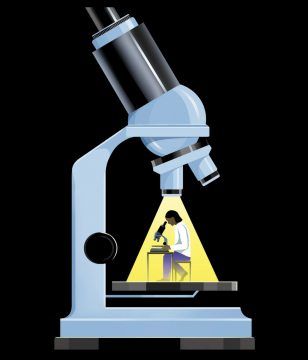Joshua Rothman in The New Yorker:
 Recorded history is five thousand years old. Modern science, which has been with us for just four centuries, has remade its trajectory. We are no smarter individually than our medieval ancestors, but we benefit, as a civilization, from antibiotics and electronics, vitamins and vaccines, synthetic materials and weather forecasts; we comprehend our place in the universe with an exactness that was once unimaginable. I’d found that science was two-faced: simultaneously thrilling and tedious, all-encompassing and narrow. And yet this was clearly an asset, not a flaw. Something about that combination had changed the world completely.
Recorded history is five thousand years old. Modern science, which has been with us for just four centuries, has remade its trajectory. We are no smarter individually than our medieval ancestors, but we benefit, as a civilization, from antibiotics and electronics, vitamins and vaccines, synthetic materials and weather forecasts; we comprehend our place in the universe with an exactness that was once unimaginable. I’d found that science was two-faced: simultaneously thrilling and tedious, all-encompassing and narrow. And yet this was clearly an asset, not a flaw. Something about that combination had changed the world completely.
In “The Knowledge Machine: How Irrationality Created Modern Science” (Liveright), Michael Strevens, a philosopher at New York University, aims to identify that special something. Strevens is a philosopher of science—a scholar charged with analyzing how scientific knowledge is generated. Philosophers of science tend to irritate practicing scientists, to whom science already makes complete sense. It doesn’t make sense to Strevens. “Science is an alien thought form,” he writes; that’s why so many civilizations rose and fell before it was invented. In his view, we downplay its weirdness, perhaps because its success is so fundamental to our continued existence.
More here.
